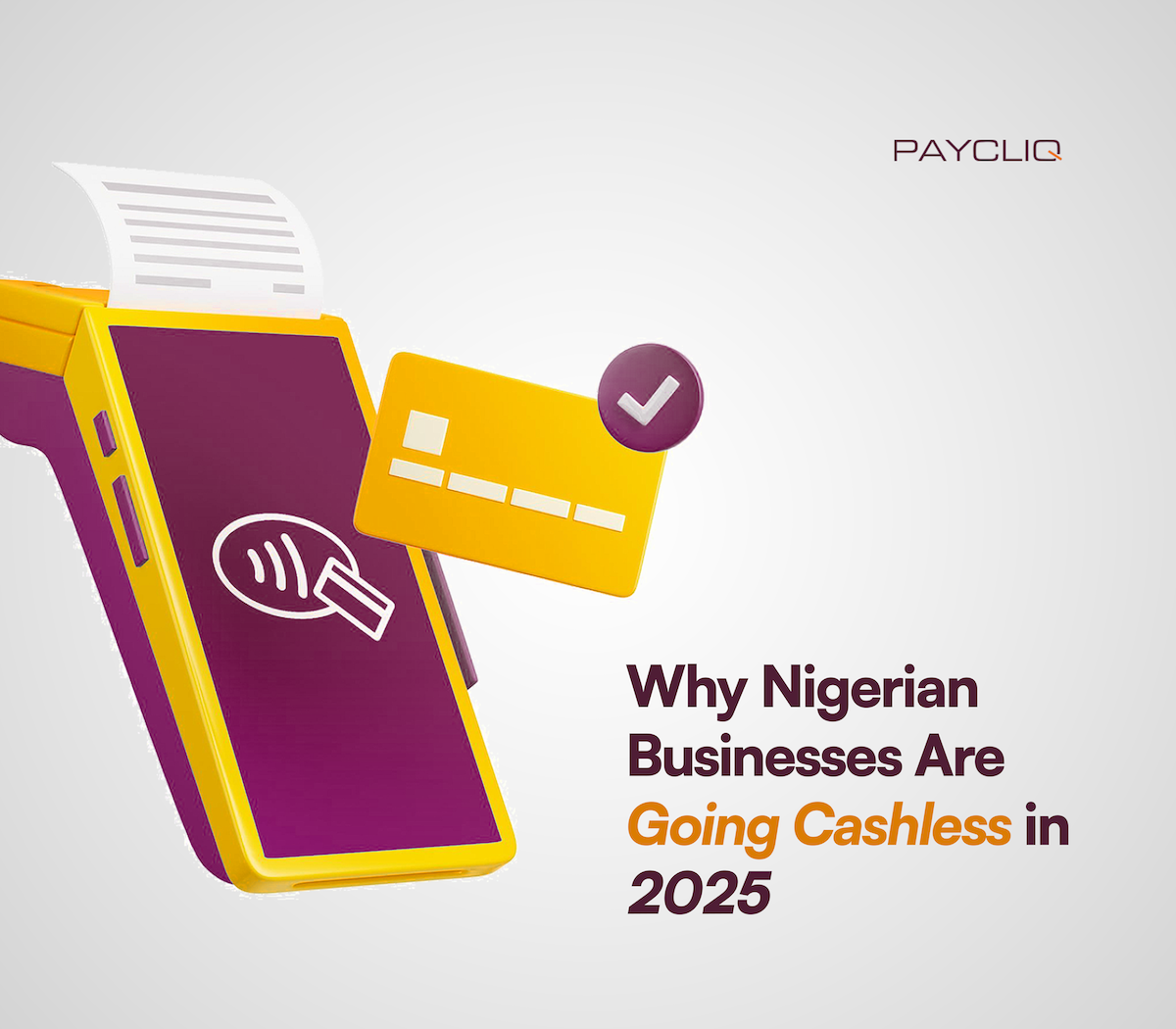Cash is quietly disappearing from Nigerian business transactions in 2025. It doesn’t matter the scale of the business, more businesses accept mobile payments over cash. Some businesses have the “No cash,” policy. This shift is happening for many reasons happening that are pushing businesses to ditch cash. This post will examine the key reasons behind the growing cashless movement in Nigeria’s business sector.
1. Government Policies Are Leaving No Room for Cash Dependence
The Central Bank of Nigeria (CBN) is firm in its efforts to reduce our dependency on cash. The cashless economy policy has been efficient so far. In late 2023, the policy limited weekly cash withdrawals to ₦100,000 for individuals and ₦500,000 for businesses. Within three months of this policy rollout, mobile payment usage jumped by over 21%.
CBN is pushing for a digital economy which is part of a long-term vision to formalise the economy, improve transparency, and boost financial inclusion. If you run a business in 2025, digital payment compliance is now part of basic survival.
2. Fintechs Are Making a Cashless Life Easier Than Ever
Five years ago, accepting digital payments meant unreliable networks and long settlement times. Today, platforms like PayCliq and the others have changed the game.
In March 2025, NIBSS reported that Nigeria now has over 2.3 million active POS terminals. That’s an increase from 1.8 million the previous year. Mobile money users have crossed 78 million. QR code payments, once a novelty, are now growing at a rate of nearly 60% annually.
These fintech tools are cheaper, they work faster, and are safer. Many SMEs now use PayCliq’s tools to accept transfers, monitor sales, and get paid instantly.
3. Customers Are Driving the Change
This shift isn’t one-sided. Nigerian consumers, especially younger ones, prefer digital payments. A recent NBS survey found that 64% of buyers prefer transfer or POS options over physical cash.
In Lagos and Abuja, it’s become normal for people to walk around without a naira note. Ride-hailing, food delivery, and retail shopping are all done via apps and transfers. Even in semi-urban areas, USSD is helping market sellers transition to a cashless system with ease.
4. Security and Simplicity Are Hard to Ignore
Handling cash is stressful. There’s always a risk of theft, fake notes, or staff tampering. On the other hand, digital payments reduce these risks.
Businesses that switched to cashless operations in 2024 reported a 38% drop in cash-related losses. This is peace of mind and protecting your business.
5. It’s Cheaper to Go Cashless
Cash might feel free, but managing it isn’t. Counting errors, transport, and security costs add up. A typical SME spends nearly ₦28,000 per month just managing cash. With digital tools, the cost drops by nearly 65%. Also, digital records helps to easily track business tax reporting.
Going Cashless Is a Business Strategy
The shift toward digital payments is a core part of how successful Nigerian businesses operate. It’s efficient, safe, and more aligned with how today’s customers live. If you’re still running a cash-first business in 2025, you’re vulnerable to losing customers and profits.
Our Take
At PayCliq, we help Nigerian businesses transition smoothly into a cashless future. Our payment solutions are designed for local realities. That makes them simple to use, fast to settle, and safe to grow with.
Your business needs to embrace digital payment to achieve desired profit and growth. Ready to make the switch? Join thousands of smart Nigerian businesses already moving with the times. Go cashless, go forward, go with PayCliq.



What do you think?
It is nice to know your opinion. Leave a comment.